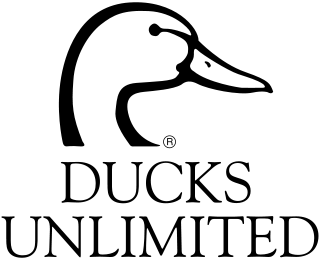
BROOKINGS, S.D. (Ducks Unlimited) – The Natural Resources Conservation Service (NRCS) announced today Ducks Unlimited (DU) and partners have been awarded a $8.73 million NRCS Regional Conservation Partnership Program (RCPP) grant to develop a producer-focused program, named Scaling Soil Health in the Prairie Pothole Region (PPR).
The program will offer farmers and ranchers technical and financial assistance, advanced training and mentorship to increase the adoption of soil health practices in the PPR of North Dakota, South Dakota and Montana.
“This is a significant growth opportunity for DU’s conservation program to help more producers in the prairies access the education and financial support they need to adopt soil health practices,” DU Chief Conservation Officer Karen Waldrop said. “Along with our partners, we look forward to working with interested farmers and ranchers to help them improve soil quality and wildlife habitat on their lands and produce positive economic results as well.”
South Dakota Manager of Conservation Programs Bruce Toay says soil health practices will work for farmers and ranchers anywhere, with ecosystem outcomes that would benefit the entire country. Ducks Unlimited wants to start this voluntary program in the PPR where producer interest is already high.
“There is already a growing soil health movement in the prairies, and we hope to provide farmers and ranchers the additional opportunities to help scale that up,” Toay said. “We want to emphasize their importance in the PPR, as these practices can help manage water under conditions that frequently range from very dry to very wet.”
DU, along with private and public partners, will assist producers who wish to adopt innovative soil health practices on cropland, restore and retain working grasslands, improve livestock grazing capacity and maintain healthy seasonal wetlands. The grant is part of the new, unique Alternative Funding Arrangement version of RCPP, which gives Ducks Unlimited the flexibility to integrate multiple NRCS practices and directly solicit landowner input in program development.
“We hope to demonstrate how producers’ profit margins and soils change on a local scale and how that relates to water quality and quantity, wildlife habitat, carbon dynamics, and other large-scale societal benefits,” Toay said.
Part of the program is on-farm monitoring with participating producers to observe changes in their land’s water-holding capacity, organic matter, soil carbon and whether the operation’s economics are improving. To ensure long-term practice retention, DU will integrate partnerships to provide on-site technical assistance and outside training opportunities.
“We also want to offer mentorship opportunities to provide landowners a farmer-led community of practitioners they can lean on far into the future,” Toay said.
DU will be leading the effort, in conjunction with NRCS, and diverse partners will be contributing funds or expertise. For soil health analysis, DU is partnering with the Soil Health Institute. For advanced education opportunities for participating producers, DU will partner with Understanding Ag, LLC and the Soil Health Academy, South Dakota Soil Health Coalition, South Dakota Grassland Coalition, North Dakota Grazing Lands Coalition and the Rancher’s Stewardship Alliance.
Additional partners include the U.S. Fish and Wildlife Service, Montana Fish, Wildlife and Parks, the U.S. Fish and Wildlife Partners for Wildlife Program, North Dakota Natural Resources Trust, North Dakota Wildlife Federation, North Dakota Department of Environmental Quality, South Dakota Game, Fish and Parks, Second Century Habitat Fund, Beadle Conservation District, and Millborn Seeds.
